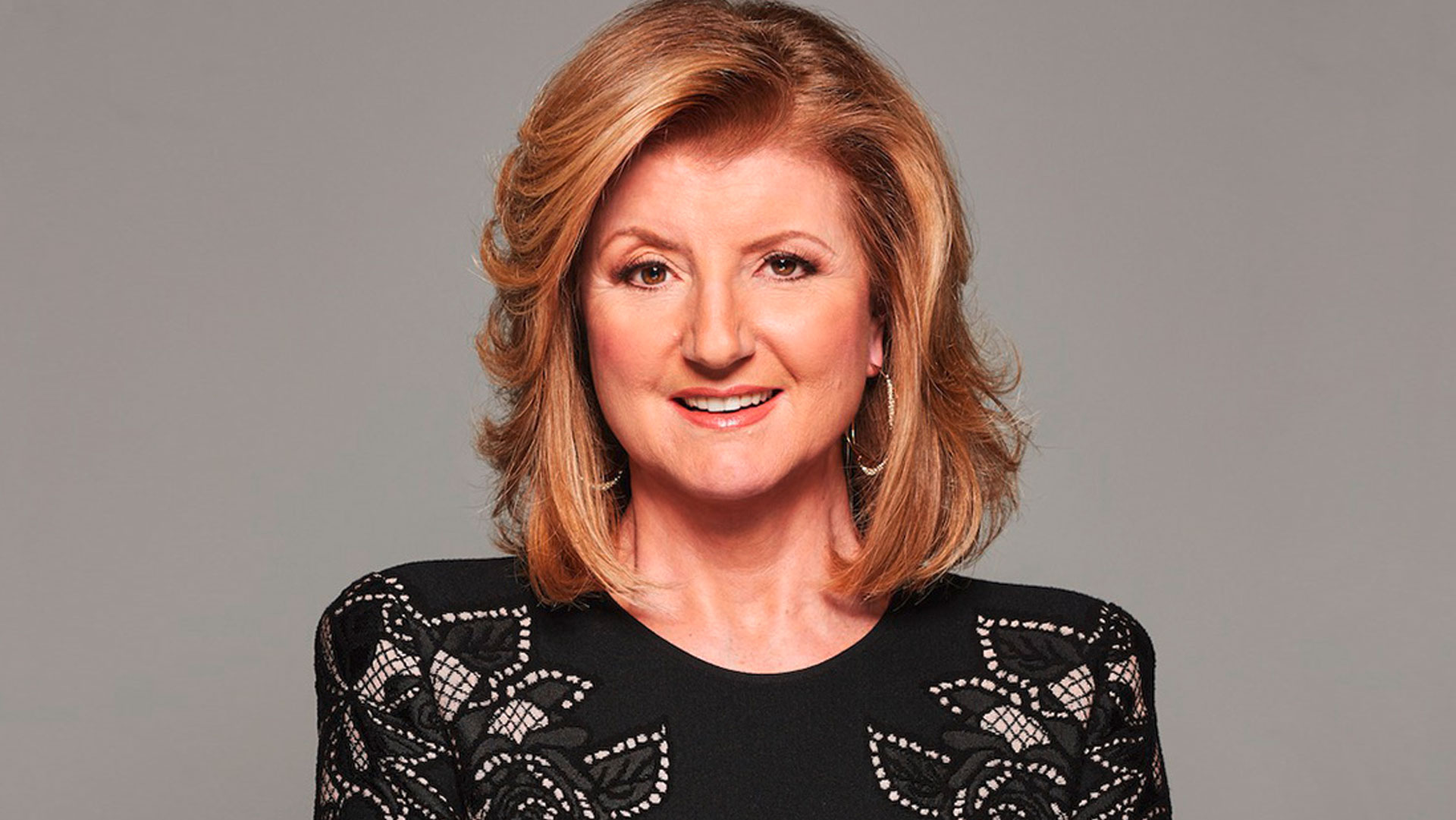#1 Adapt your onboarding process to create real-time engagement
This is a once-in-a-generation opportunity to rethink onboarding, as people enter — or re-enter — workplaces that have been reshaped by the pandemic. Instead of just being a one-time process, onboarding can be used to create a culture of real-time and continuous engagement. At Thrive, the core of our onboarding process is our Entry Interview, in which we ask new hires what’s most important to them in their lives, both at work and outside of work. For parents, it might be taking a child to school. For others, it might be logging off early one night a week for an exercise class, or care-giving for elderly parents. The Entry Interview is all the more important now since, as is often the case in a hybrid world, the manager has never met the new employee. The key is to keep this two-way engagement going with regular check-ins since our needs evolve over time.
#2 Secure your own oxygen mask first
There’s a reason why airline attendants always give the instruction to secure your own oxygen mask first. We’re much more effective at taking care of others — and taking care of business — when we first take care of ourselves. And this is especially important in challenging times. And for CHROs, these are stressful times. Unlike machines, for humans, downtime is a feature, not a bug. Early in the pandemic, Accenture’s Chief Leadership and Human Resources Officer, Ellyn Shook, told me she’d stopped taking her daily walks because of her rising workload. So she learned to reframe her thinking: instead of seeing her walks as self-indulgent, she came to see them as a way to make her a better leader. When we don’t take care of ourselves, she said, “we’re really no good to anyone: our employers, our families and our communities, and all three need us in a very big way right now.” And instead of keeping it to herself, she shared her daily ritual with her Accenture colleagues, inspiring others to follow her lead.
#3 Make sustainability personal
Most companies have made sustainability part of how they do business, whether through sourcing, supply chains or reducing waste. But CHROs have an opportunity to take this macro trend and make it a little more micro, by connecting it directly to the way people live and work. Because as the science on how we think and make decisions under stress makes clear, when we’re burned out, we operate on short-termism and day-to-day survival, just trying to get through the day. We’re not just less able to create more sustainable habits, we’re also unable to think about the future, make the wisest decisions for the long term and come up with creative and innovative solutions to complex challenges. At a time when people need support in building sustainable habits and businesses depend on healthy, focused, motivated employees to succeed, CHROs can seize the moment and connect the dots.
#4 Continue to expand well-being — even in tough times
It’s when times are tough that we most need to double down on our resilience. That’s why Thrive partnered with SHRM on a full page ad in The New York Times calling on companies to pledge to continue prioritizing employee mental health and well-being, even in the challenging economic times ahead. It’s urgent we don’t lose the gains we’ve made. And that’s not just because it’s a nice thing to do, but because there’s a growing awareness of the reality that employee mental health and well-being are directly tied to business outcomes. To cite just one example, research commissioned by Cigna found that 18% of working parents who have a child at home dealing with a mental health challenge report a negative impact on their productivity. At the same time, a survey released in May by the Conference Board found that 77% of HR executives said they’ve seen an increase in employees reporting they’re burned out — up from 42% in September, 2020. We’ve come too far to go back now, which is why we need to expand, not contract, on employee well-being.
#5 Nurture hybrid skills and create new Rituals for social capital
Hard skills and expertise are always going to be table stakes, but to successfully navigate the new hybrid world defined by constant uncertainty, companies will need to also nurture the uniquely human skills of empathy, resilience, collaboration, team building and creativity. On my podcast, “What I’ve Learned,” Salesforce founder and CEO Marc Benioff spoke about how he’s had to create a new way to run his company and support his people. “We have to enable important skills, like mental health skills,” he told me. “We have to unlock them to get people back to being productive and successful.”
One way CHROs can unlock these hybrid skills is by fostering connections in the office for hybrid workers. According to a survey by Boston Consulting Group, employees who feel connected to their co-workers are two to three times more able to improve or maintain productivity than those who don’t feel connected. So when hybrid workers come into the office, their time should be spent in ways that foster connection, interaction and team-building instead of simply recreating their workday at home. Instead, that time should be maximized to foster connection, interaction and team building.
At the same time, for employees working remotely, CHROs need to find new ways to build social capital by replacing serendipitous connections with new, intentional rituals. As forward-thinking companies are showing, to create building blocks of social capital in a hybrid world, we need to be much more intentional about the ways we interact — from onboarding to the use of technology. It might seem paradoxical to be deliberate about creating serendipity, but this is the only way to create the space and seed it with elements that can spark human connection. CHROs, with their instinct and passion for bringing people together, should relish this opportunity to get creative and think outside the box.
Read More:
- The New Hybrid Work Model Will Require Hybrid Skills: Resilience, empathy and creativity are the key human skills of our hybrid world
- Building Social Capital In a Hybrid World: New rituals for empathy, connection and collaboration.
#6 Use crisis as a catalyst for change
The past two years have been a crucible — a time of terrible trials and tragic losses — but crucibles can also be catalysts for change that would otherwise have been impossible. Amidst all the tragedy of this time, we have a once-in-a-generation opportunity to redefine how we work — and CHROs are on the front lines of that effort. When I was on the Digital HR Leaders podcast with Walmart Chief People Officer Donna Morris, she talked about how she’d been able to use this time at Walmart: “We’ve really started a movement here at Walmart in terms of all of our associates taking time for their own personal well-being. And that catalyst might not have happened if we didn’t have this crisis.” Donna Morris made well-being a company priority — with an emphasis on emotional well-being and resilience — using the crisis as a catalyst not only for new conversations but for action.
“What’s changed is the pandemic made us all vulnerable,” she said. “And well-being is going to be at the forefront.”
—Donna Morris, Walmart Chief People Officer
#7 Use technology to augment humanity — and productivity
Technology has obviously been a lifeline during the pandemic, but at the same time, much of that same technology is also fueling burnout. In Asana’s Anatomy of Work Index, rates of burnout were directly connected to how dependent workers were on their devices. The productivity paradox is that we may be working more, but getting less done. So even though technology might be managed across several departments, CHROs should take a hard look at how technology is being used and ask, is technology at our company being used to enhance productivity, or are my team members drowning in it?
#8 Bring diversity, equity, and inclusion to the forefront
In addition to the inequities laid bare by the pandemic, the past two years have fueled an awakening around systemic racism and injustice. Organizations now face the challenge — and the opportunity — of actually moving the needle on DE&I. CHROs need to channel the passion and hunger for change into tangible action, creating workplace environments where everybody feels not only psychological safety, but a sense of belonging. It’s a moral imperative and, if you need an additional reason, a business necessity: a report by McKinsey found that companies in the top quartile for gender diversity in their executive ranks were 25% more likely to have above profits than companies in the fourth quartile. In ethnic and cultural diversity the numbers were even higher, with top ranking companies 36% more profitable than those at the bottom. This shift, from diversity initiatives and perfunctory HR campaigns to committing to valuing every employee in a whole human way — and letting people’s differences shape the organization — represents one of the ways CHROs can deliver immediate and lasting value.
#9 create a whole human workplace, starting at the top
As chaotic as working from home has been for many people (“Can you let go of your sister’s hair — mommy is on a Zoom!”), the pandemic has made it more clear than ever that we bring our whole selves to work — and that’s a good thing. CHROs should use this opportunity to create a whole human workplace in which the way we communicate reflects the realities of employees’ lives. This could mean daily check-ins. Or starting every conversation with simple, direct questions, like, “How are you?” “How is your family?” “How can I support you?” Giving people time and space to share what otherwise might be kept private allows people to take their whole selves to work and realize their full human potential.
#10 Use the new SEC rule on human capital to expand well-being metrics
In November of 2020, a groundbreaking new SEC rule went into effect. It requires companies to not only disclose how many employees they have, but also “any human capital measures or objectives that management focuses on in managing the business.” In 1975, 83% of the value of companies in the S&P 500 came from their physical capital. By 2015, 84% of that value came from their human capital. So the new rule is a welcome acknowledgement that employee well-being is a key driver of business performance. It also gives CHROs a great opportunity — and leverage — to expand and elevate ESG reporting and employee well-being metrics, which are increasingly and rightly seen by shareholders as crucial investment information.
Subscribe here for Arianna’s On My Mind Newsletter, where you’ll find inspiration and actionable advice on how to build healthy habits, resilience and connections in our unprecedented times.






